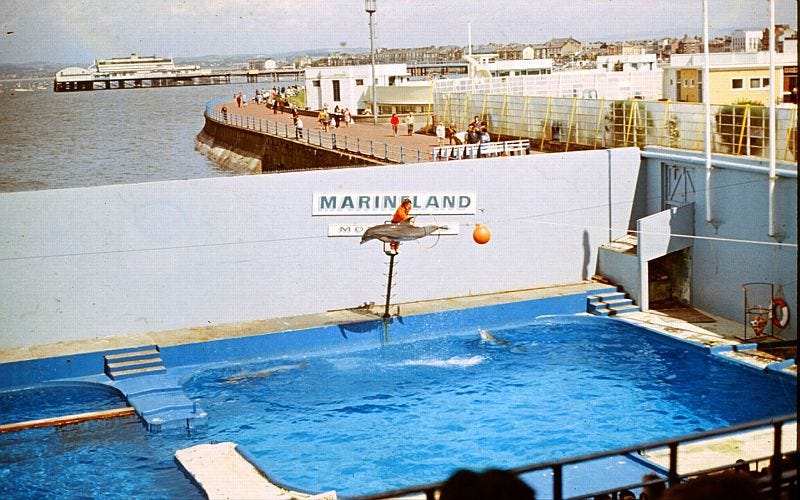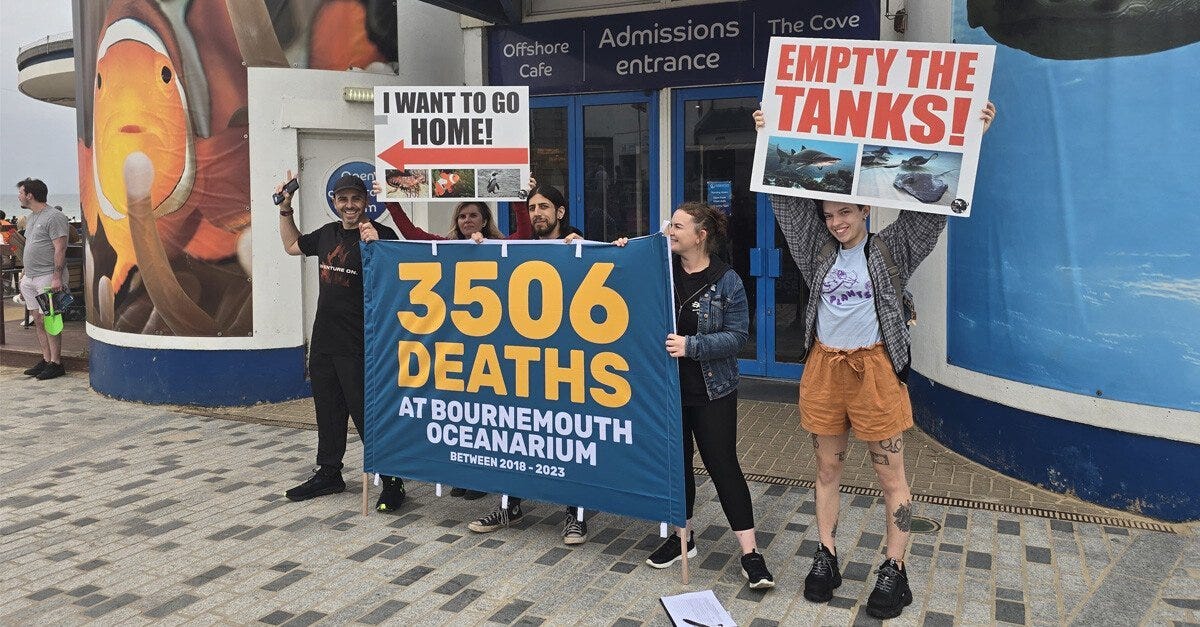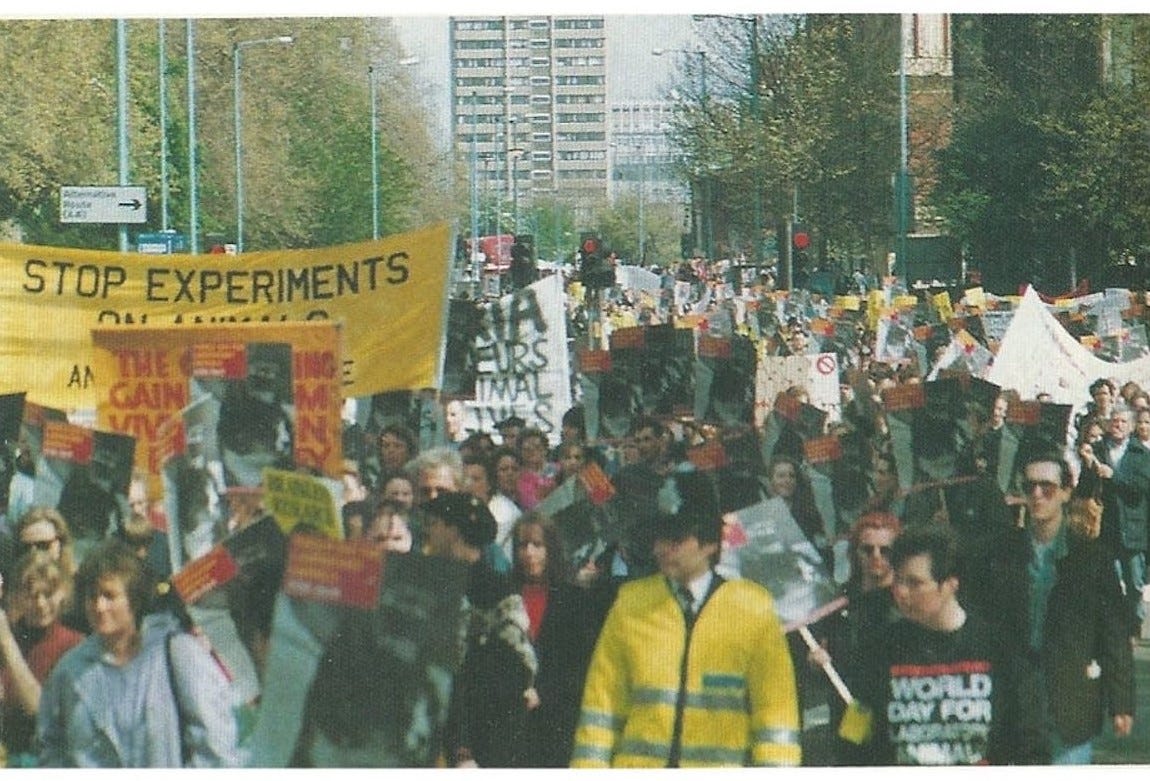How can our movement rebuild the power we once had?
The forgotten grassroots power that once transformed the UK – and how we can revive it
Thirty years ago, there were 300 decentralised local animal rights groups across the UK.
These groups organised within their communities, choosing the issues, campaigns and tactics that mattered most to them. They connected animal rights with wider struggles for justice and used a diversity of methods to confront oppression. Together, they formed a grassroots base that drove the movement forward.
The power of this base was incredible. For those of us newer to the movement, it can be hard to imagine just how powerful it was. Here are just some highlights that showcased what our movement achieved:
In 1993, after years of campaigning, the UK’s last dolphinarium closed its doors. The closure followed the attempted liberation of Rocky the dolphin from Marineland in Morecambe, an event that inspired communities nationwide to escalate pressure on the industry. Public attention surged, Born Free launched its Into the Blue initiative, and Rocky was eventually released back into the wild. This victory marked the beginning of the end for dolphinariums in the UK.

A few years later, the ‘fur’ industry collapsed. Local groups had exposed farms, liberated animals, organised boycotts, and sustained public pressure until demand for ‘fur’ plummeted. When the Labour government offered a compensation deal – proposed by Compassion in World Farming – for ‘fur’ farmers to exit the industry, most leapt at the chance. Within a decade, farming animals for ‘fur’ had ended in the UK.
This same grassroots energy eroded public support for using ‘wild’ animals in circuses, live animal exports, and cosmetic testing on animals. Community organising created the public pressure and political conditions that made each of these bans possible. Again and again, local action drove national change.
This was power built from the ground up – people in towns and cities across the country acting locally and winning nationally. Every significant step forward in the history of our movement has been achieved through these local groups: highlighting issues to the public, mobilising action around the problem, and creating the conditions required for NGOs to secure legislative change.
In the early 2000s, amid a government crackdown following the high-profile SHAC (Stop Huntingdon Animal Cruelty) campaign, this network collapsed. Since then, a new movement emerged that is larger and more coordinated, yet often organised from the top down. Beneath the incredible activism currently taking place, a void remains. We have been building a movement without the foundations that allow us to build power, grow capacity, and become the mass movement fellow animals need us to be.
Project Phoenix was launched to change this. In September 2024, we helped seed Dorset Animal Action – a modernised community-based group that is a coalition of all animal freedom activists in the area, with the capacity to collaborate, scale, and organise. The group has grown to 160 members, filled coaches for national protests, and hosted the world’s largest National Animal Rights Day event. The model is spreading to other towns, forming the beginnings of the Animal Freedom Network.

Project Phoenix are offering tools to help this grassroots network reach its full potential:
we’ve created a range of how-to guides (on forming groups, organising protests, fundraising, outreach, legal rights, governance and more – all available on our website, with video tutorials to follow);
our first southern regional bootcamp for training and skill-sharing takes place in October 2025;
this will be followed by two more regional bootcamps in spring and summer 2026 (in the north and the Midlands);
and our first national gathering and convergence will be held in autumn 2026 – a week of skill-sharing, training, and practical action.
These free events are designed to empower and inspire existing organisers as well as the public. As our network and capacity grow, the Animal Freedom Network will be launching a news service to report on the breadth of activism taking place across local groups and share upcoming opportunities to take part in. This will allow people to engage with issues and campaigns that resonate with them, while showcasing to the public the scale and vitality of the animal freedom movement.
Project Phoenix’s goal is to rebuild the grassroots base to 300 active groups and sustain it. If every town in the UK sent 50 people to a national protest, over 50,000 people would fill the streets – enough to transform what is possible for fellow animals.
That future depends on us rebuilding the foundation of the movement to keep on winning.
If you want to be a part of that (whether it’s skills you have to offer, or you want to set up a group in you local community), please reach out to us.


